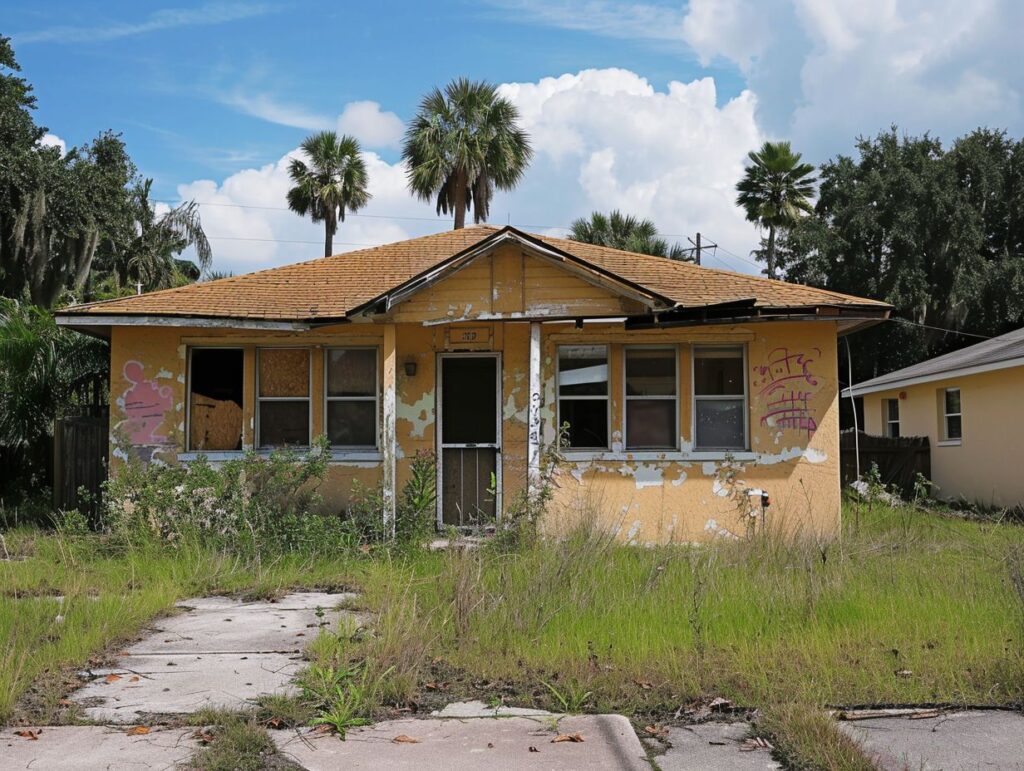Eminent domain can be a complex and challenging issue for property owners in Florida. Understanding the laws and regulations surrounding eminent domain, as well as the rights and options available to property owners, is crucial in navigating this process.
From the Florida Eminent Domain Act to the steps for negotiating with the government, there are important considerations to keep in mind.
This article will explore the ins and outs of eminent domain in Florida, including potential outcomes, defenses for property owners, and the importance of seeking legal representation.
Whether you are facing an eminent domain action or simply want to be prepared for the future, this article will provide valuable insight into how to handle eminent domain in Florida.
Key Takeaways:
- Property owners in Florida have rights when it comes to eminent domain cases, including the right to just compensation and limits on government taking of private property.
- Hiring an attorney is crucial for navigating the eminent domain process in Florida, as they can help negotiate with the government and explore alternatives to litigation.
- Understanding eminent domain laws in Florida is important for property owners, as they have options for challenging actions and appealing decisions made by the government.
What is Eminent Domain?
The concept of Eminent Domain refers to the government’s authority to acquire private property for public use. In this process, property owners are entitled to receive fair compensation for the taken property, a procedure that is regulated by legal frameworks in Florida and across the United States.
Historically, the origins of eminent domain lie in the idea of the ‘public good,’ where the government possesses the power to acquire specific land or real estate for projects deemed essential for the community’s welfare. This tradition stretches back over centuries, adapting to weigh public interest against property rights.
In Florida, eminent domain is commonly employed for infrastructure initiatives such as road expansions, utilities, and public buildings. This legal mechanism allows governments to surmount challenges in obtaining land for important developments, balancing individual property rights with the broader welfare of the community.
What are the Laws and Regulations for Eminent Domain in Florida?
In Florida, eminent domain is governed by a series of laws and statutes, which include the Florida Constitution and the Florida Statutes. These laws establish the guidelines for how the government and other eminent domain authorities, such as the Department of Transportation, can utilize this authority.
What is the Florida Eminent Domain Act?
The Florida Eminent Domain Act, located in Title VI, Chapter 73 of the Florida Statutes, details the procedures and regulations governing the state’s exercise of eminent domain. It ensures that property owners are provided with equitable compensation and that the process is carried out in accordance with the law.
This Act aims to find a middle ground between the requirements of public projects and the protection of private property rights. It establishes the structure through which government entities can acquire private property for public use objectives, such as constructing roads, schools, or parks.
The Act requires that property owners receive fair compensation for the land taken through a thorough appraisal process. It outlines specific procedural guidelines that must be adhered to in order to protect the rights of property owners during eminent domain proceedings.
What is the Process for Eminent Domain in Florida?
The process for eminent domain in Florida includes several steps. These steps involve initial negotiations between the government and the property owner, obtaining an appraisal for fair market value, and possibly resorting to court if an agreement cannot be reached.
During negotiations, the government typically presents a written offer outlining the compensation amount they are willing to pay for the property. Property owners have the option to accept the offer, negotiate for a higher amount, or challenge the government’s decision through legal channels.
If an agreement is not reached, the government may file a condemnation lawsuit to start legal proceedings. In court, property owners can present evidence to support their claim for higher compensation, and judges will ultimately determine the fair market value of the property.
What are the Rights of Property Owners in Eminent Domain Cases?
Property owners are entitled to certain rights in eminent domain cases. These rights include the right to receive fair compensation for their property, the right to undergo a fair appraisal, and the right to have legal representation by an attorney during the entire process.
What is Just Compensation in Eminent Domain Cases?
The compensation in eminent domain cases is typically determined based on the fair market value of the property at the time of the taking, ensuring adequate reimbursement for the property owner’s loss.
This valuation process is essential to guarantee fairness to property owners whose lands are being acquired for public use. Appraisals play a significant role in assessing the fair market value, considering factors like the property’s location, size, condition, and potential uses.
Legal guidelines and principles are also considered to ensure that the compensation aligns with constitutional standards. Government entities must follow established procedures to prevent disputes or allegations of unfair treatment. Practical factors, such as the impact of the acquisition on the property owner’s livelihood, are also taken into account when determining just compensation.
What are the Limits on Government Taking of Private Property in Florida?
The Florida Constitution establishes specific limits on the government’s ability to acquire private property, mandating that the taking must be for public use and that the property owner must be provided with fair compensation. These constraints are designed to prevent the misuse of eminent domain for personal profit or purely commercial objectives.
Public use typically refers to initiatives that benefit the broader community, such as infrastructure like roads, schools, or utilities. The interpretation of public use has evolved over time, with courts occasionally broadening it to encompass economic development projects.
It is essential for government entities to justify a genuine public purpose when utilizing eminent domain, as excessive or unjustified takings can result in legal disputes and public scrutiny.
How Can Property Owners Challenge Eminent Domain Actions in Florida?
Property owners in Florida have the option to dispute eminent domain actions by following a legal procedure that includes retaining an attorney, providing evidence in court, and potentially questioning the government’s authority to acquire the property or the proposed compensation amount.
What is Inverse Condemnation?
Inverse condemnation occurs when a property owner seeks compensation from the government for property taken or damaged without formal eminent domain proceedings, arguing that they deserve compensation for the loss.
This legal concept is based on the idea that while eminent domain allows the government to take private property for public use with just compensation, inverse condemnation addresses situations where the government’s actions have effectively “taken” the property without following the proper procedures.
For example, if a municipality diverts water runoff onto private land, causing flooding and damage to a homeowner’s property, that homeowner may have a valid claim for inverse condemnation. In such cases, property owners can seek legal recourse through lawsuits to demand compensation for the property loss or damages incurred.
What is a Quick-Take Eminent Domain?
The legal concept of quick-take eminent domain allows the government to acquire a property before determining the final compensation amount, as long as the property owner is provided with an upfront good faith estimate of just compensation. This process is regulated by a specific legal framework that establishes the necessary steps and procedures.
While the government can take immediate possession of the property, it is required to adhere to strict guidelines to ensure fair compensation for property owners. The courts have a significant role in overseeing the process and determining the final compensation amount in the event of disputes between the government and property owners.
Property owners have various protections in place, including the right to challenge government actions and seek redress if they feel their rights are being violated during the quick-take eminent domain process.
What are the Steps for Negotiating with the Government in Eminent Domain Cases?
Navigating through eminent domain cases involves various essential steps, such as:
- Engaging in preliminary discussions to comprehend the government’s proposal,
- Acquiring an impartial appraisal, and
- Enlisting the services of a lawyer to guarantee equitable compensation for the property owner.
What is the Importance of Hiring an Attorney for Eminent Domain Cases?
It is important to consider hiring an attorney for eminent domain cases due to their ability to navigate the intricate legal process, protect the rights of the property owner, and ensure they receive appropriate compensation.
Eminent domain attorneys offer a high level of expertise, particularly in negotiation and litigation. Property owners facing government or private entities attempting to acquire their property can benefit from legal representation. These attorneys possess a deep understanding of eminent domain law and are skilled in advocating for fair outcomes.
By seeking their services, property owners can have confidence that their rights will be protected throughout the process, increasing the likelihood of achieving favorable results.
What are the Alternatives to Litigation in Eminent Domain Cases?
In eminent domain cases, alternatives to litigation include negotiation and mediation. Property owners and the government can use these methods to reach a mutually agreeable settlement without going to court.
Negotiation involves discussions where parties try to find common ground and resolve disputes through compromise. By openly discussing concerns, property owners and government representatives can work towards a solution that benefits both parties.
In contrast, mediation involves bringing in a neutral third-party mediator to facilitate communication and help in finding a resolution. Successful settlements through negotiation and mediation can lead to faster outcomes, reduced costs, and better preservation of relationships between the involved parties.
These alternative methods are particularly beneficial when there is a desire to maintain amicable relations or when a quick resolution is desired.
What are the Potential Outcomes of an Eminent Domain Case in Florida?
The potential outcomes of an eminent domain case in Florida can vary, with property owners either reaching a settlement with the government or proceeding to trial, where a court will determine the appropriate compensation and finalize the taking of the property.
What is the Difference Between a Settlement and a Trial in Eminent Domain Cases?
A settlement in an eminent domain case involves both parties agreeing on the compensation amount without going to court, whereas a trial requires a court to hear evidence and make a final determination on compensation and property rights.
Settling can often be a quicker and less costly option for property owners, as it avoids the time-consuming and potentially expensive process of a trial. Settling out of court can help maintain a more amicable relationship between the parties involved.
On the other hand, going to trial may provide a more definitive resolution, as a judge will make a final decision based on the presented evidence, ensuring a clear and binding outcome. The trial process can be lengthy, complex, and costly, involving legal fees and court expenses that can add up quickly.
What are the Possible Defenses for Property Owners in Eminent Domain Cases?
Property owners have various options to defend against eminent domain actions. These include challenging the government’s authority to take the property, disputing the claim of public use, or arguing that the compensation offered is inadequate.
In eminent domain cases, procedural defenses can involve questioning the validity of the eminent domain proceedings or alleging that the government did not adhere to required procedures. On the other hand, substantive defenses may include questioning the necessity of taking the property for the intended public use or demonstrating that the government’s actions were arbitrary or unreasonable.
Successful defenses in the past have often revolved around proving that the government failed to properly designate the property for public use or that the compensation offered did not accurately reflect the property’s true market value.
What are the Next Steps for Property Owners After an Eminent Domain Case in Florida?
Following an eminent domain case in Florida, property owners have various options available to them. These options include:
- Accepting the compensation awarded
- Filing an appeal if they believe the decision was unjust
- Comprehending the long-term implications for their property rights and financial situation
What are the Options for Appealing an Eminent Domain Decision in Florida?
Property owners in Florida have the option to appeal an eminent domain decision by submitting a notice of appeal to the appropriate court. This notice should outline the legal or procedural flaws in the decision, or argue that the compensation provided was insufficient.
To start the appeal process, the property owner must provide a written notice of appeal that specifies the legal reasons for contesting the eminent domain decision. These reasons could relate to violations of due process, inaccuracies in property valuation, or failures to meet statutory requirements for eminent domain.
After the notice of appeal is submitted, the court will examine the case and set a hearing where both parties can present their arguments. The results of the appeal can range from overturning the original decision to adjusting the compensation amount. An appeal can have significant consequences for both the property owner and the government entity utilizing eminent domain powers.
What is the Importance of Understanding Eminent Domain Laws in Florida?
Understanding eminent domain laws in Florida is essential for property owners to protect their rights, ensure they receive fair compensation, and effectively navigate the legal process when faced with a potential taking of their property.
By having a thorough understanding of the eminent domain laws specific to Florida, property owners can protect themselves from unjust practices and ensure that their rights are respected. Understanding the nuances of these laws enables property owners to negotiate for better compensation and pursue legal recourse if necessary.
Legal resources such as property rights organizations, real estate attorneys, and online legal databases can offer valuable guidance and advice on handling eminent domain cases. Being knowledgeable about the legal framework concerning eminent domain is critical in asserting one’s property rights and achieving a just resolution.
Frequently Asked Questions
What is eminent domain and how does it apply in Florida?
Eminent domain is a legal process in which the government or other authorized entity has the power to take private property for public use. In Florida, the power of eminent domain is granted to the government through the Florida Constitution and is regulated by state law.
How can I challenge an eminent domain action in Florida?
If you believe your property is being taken for an improper purpose or without just compensation, you can challenge the eminent domain action in court. It is recommended to seek the assistance of an experienced attorney who can guide you through the legal process and protect your rights as a property owner.
What is the process for receiving just compensation in an eminent domain case in Florida?
After the government or authorized entity takes your property, they are required to provide you with just compensation, which is the fair market value of your property. You have the right to challenge the amount of compensation offered and present evidence of the true value of your property in court.
Can I negotiate with the government for a higher compensation amount in an eminent domain case?
Yes, you have the right to negotiate with the government or authorized entity for a higher compensation amount. However, it is important to remember that the government has the power of eminent domain and can ultimately take your property even if you do not agree with the compensation offered.
Are there any limitations on the government’s power of eminent domain in Florida?
Yes, the government’s power of eminent domain is subject to certain limitations in Florida. For example, the government cannot take your property solely for economic development purposes or without providing you with just compensation.
What should I do if I receive a notice of eminent domain in Florida?
If you receive a notice of eminent domain, it is important to seek legal counsel immediately. An experienced attorney can review the notice and advise you of your rights and options, including the possibility of challenging the eminent domain action in court.



























Rate this article:
Average rating 0 / 5. Vote count: 0
No votes so far! Be the first to rate this post.
No Comments yet!